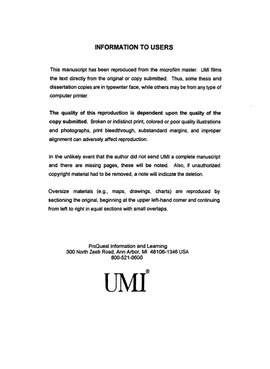| dc.contributor.advisor | Rossow, Lawrence, | en_US |
| dc.contributor.author | Fairbanks, Priscilla Ann. | en_US |
| dc.date.accessioned | 2013-08-16T12:18:57Z | |
| dc.date.available | 2013-08-16T12:18:57Z | |
| dc.date.issued | 2003 | en_US |
| dc.identifier.uri | https://hdl.handle.net/11244/587 | |
| dc.description.abstract | After three separate mailings and follow-up phone calls and home visits, a total of fifty-three (53) completed survey questionnaires, along with signed parent and student Informed Consent Forms, were returned in the stamped, addressed envelopes provided. This study had a 37% response rate. | en_US |
| dc.description.abstract | Two sources of data were used to examine the relationship. One source, the Parental Involvement Survey questionnaire, consisted of twenty-seven (27) items that measured extent of parental involvement in six Types of involvement as identified by Epstein. Two additional open-ended questions allowed survey respondents to indicate the parental involvement activities they participated in most at home and at school. The second source of data was the Iowa Test of Basic Skills which provided measures for student achievement in the areas of reading and math. | en_US |
| dc.description.abstract | This study examined the relationship between parental involvement and academic achievement within an Ojibwe Indian population. The purpose of the study was to determine if a significant relationship existed between extent of participation in Joyce Epstein's six types of parental involvement by parents/guardians of fourth and fifth grade Ojibwe students, and level of academic achievement by their fourth and fifth grade children. The study examined if Ojibwe parents participate to a greater extent in a specific type of parental involvement; and the study intended to determine if the degree of participation is similar for all types of parental involvement for parents of children who are "most" and "least" successful. | en_US |
| dc.description.abstract | One hundred fifty-one (151) survey packets were mailed to parents/guardians of Ojibwe fourth and fifth grade students who attended a public school located on an Ojibwe Indian Reservation in northern Minnesota. | en_US |
| dc.description.abstract | Major findings of the data analyses are listed below: (1) There are significant relationships between the extent of participation in two (2) of Epstein's six types of parental involvement and levels of academic achievement by their children. (2) Ojibwe parents have a significantly higher participation rate in specific types of parental involvement. (3) There is a significant difference between degree of involvement by parent's/guardian's of "most" successful students, and degree of involvement by parent's/guardian's of "least" successful students. | en_US |
| dc.format.extent | x, 100 leaves ; | en_US |
| dc.subject | Education, Elementary Parent participation Minnesota. | en_US |
| dc.subject | Education, Administration. | en_US |
| dc.subject | Ojibwa Indians Education (Elementary) Minnesota. | en_US |
| dc.subject | Education, Bilingual and Multicultural. | en_US |
| dc.title | An examination of the relationship between parental involvement and academic achievement within an Ojibwe Indian population. | en_US |
| dc.type | Thesis | en_US |
| dc.thesis.degree | Ph.D. | en_US |
| dc.thesis.degreeDiscipline | Department of Educational Leadership and Policy Studies | en_US |
| dc.note | Source: Dissertation Abstracts International, Volume: 64-03, Section: A, page: 0736. | en_US |
| dc.note | Major Professor: Lawrence Rossow. | en_US |
| ou.identifier | (UMI)AAI3082944 | en_US |
| ou.group | Jeannine Rainbolt College of Education::Department of Educational Leadership and Policy Studies | |
